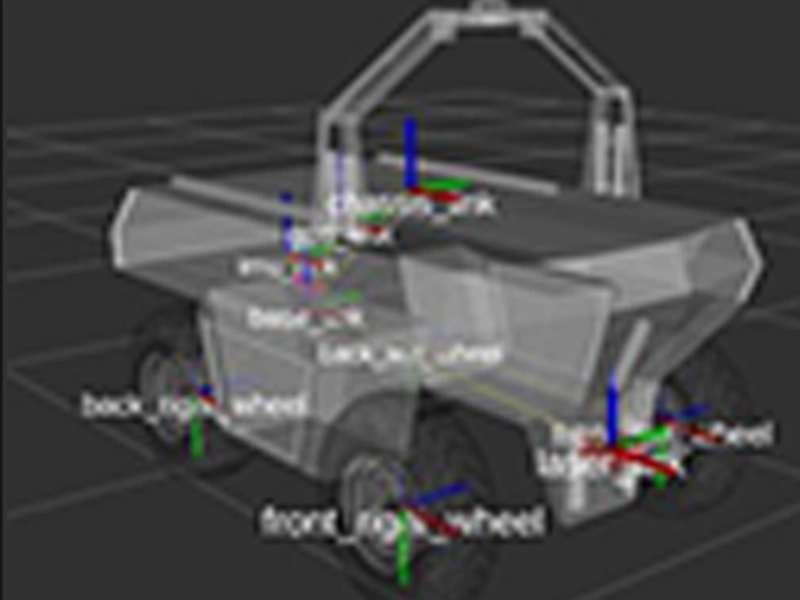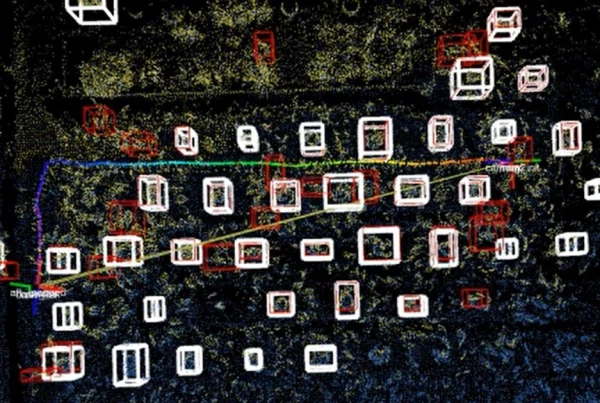Overview
UGV Assisted Navigation offers a navigation system for UGVs in off-highway environments such as agricultural plantations, construction sites and mining quarries.
It provides accurate and reliable position and orientation information of a UGV. It also presents an optimised path and trajectory information for a UGV to navigate from an initial location to the desired destination
Unmanned Ground Vehicle (UGV) Assisted Navigation is a navigation system for UGVs in off-highway environments. The technology locates the position
and orientation of a UGV as well as presents to a UGV a path and trajectory to navigate.
UGV Assisted Navigation for Off-Highway Environments
Features
UGV Assisted Navigation provides the following features:
- Responsive Control Mechanism
A responsive control mechanism (throttle, steering and braking) for a wheel-based mobile robot’s velocity while maintaining stability. - Localisation Mechanism using Sensor Fusion
A localisation mechanism using sensor fusion technique (Global Navigation Satellite System (GNSS) and Real-Time Kinematic (RTK), Inertial Measurement Unit (IMU), and visual odometry) that is accurate and reliable for position and orientation. - Navigation Planning Mechanism
An optimised navigation mechanism (computational efficiency, path length, smoothness and safety) that uses occupancy grid mapping, path and trajectory planning techniques.
Technology Benefits
The main impact of UGV Assisted Navigation is:
- Integrated Navigation System for UGV
An integrated navigation system that provides accurate and reliable position and orientation of a UGV, and optimised path and trajectory for a UGV to navigate in off-highway environments.




